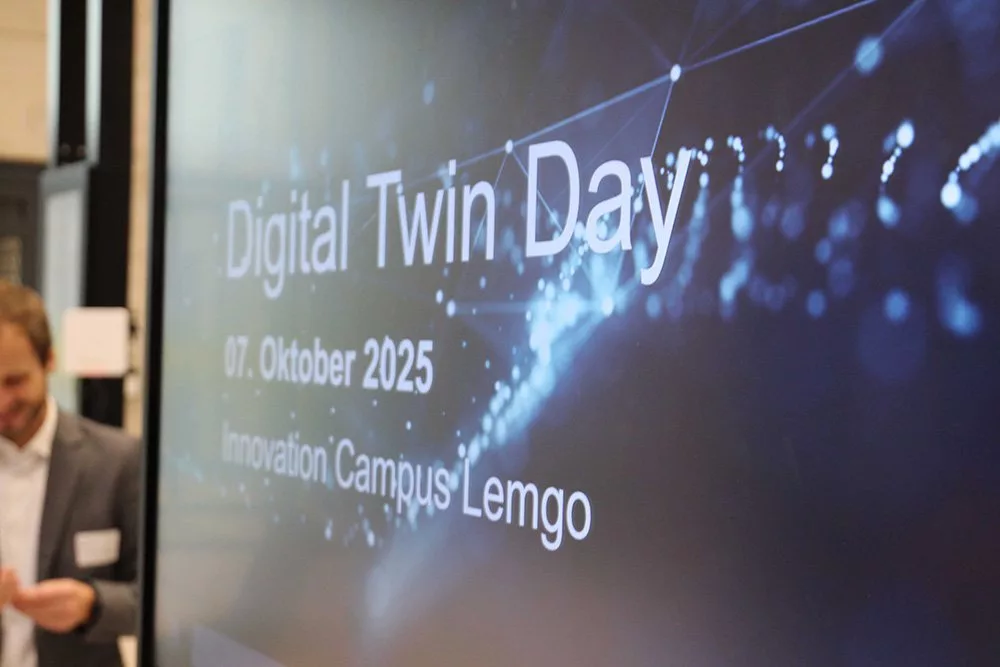
Imagine you could not only observe your production, your product or your system, but also „touch“, analyze and optimize it virtually in real time - without touching the physical system. This is exactly what a Digital Twin: a digital image, that collects data from the real world, processes it and translates it into valuable decisions.
At the Digital Twin Day at the East Westphalia-Lippe University of Applied Sciences, organized together with the Fraunhofer Institute, this vision became tangible. Benedikt Latos, an expert in data-based value creation models, guided us through current developments, showed us specific use cases and emphasized how research and industry can go hand in hand to bring digital twins into the everyday lives of companies.
In manufacturing, digital twins open up the possibility of simulating production processes, predicting bottlenecks and optimally distributing resources.
Example: A machine manufacturer uses sensor data from CNC machines, combined with a digital model, to implement predictive maintenance. The result: less downtime, lower costs and higher quality.
This is where the strength of the Digital Twin comes into play: data integration, process simulation and real-time analysis. These skills are crucial today in order to optimize production processes holistically - from development to production to quality assurance. Companies that successfully implement digital twins create the basis for greater transparency, efficiency and speed of innovation in production.
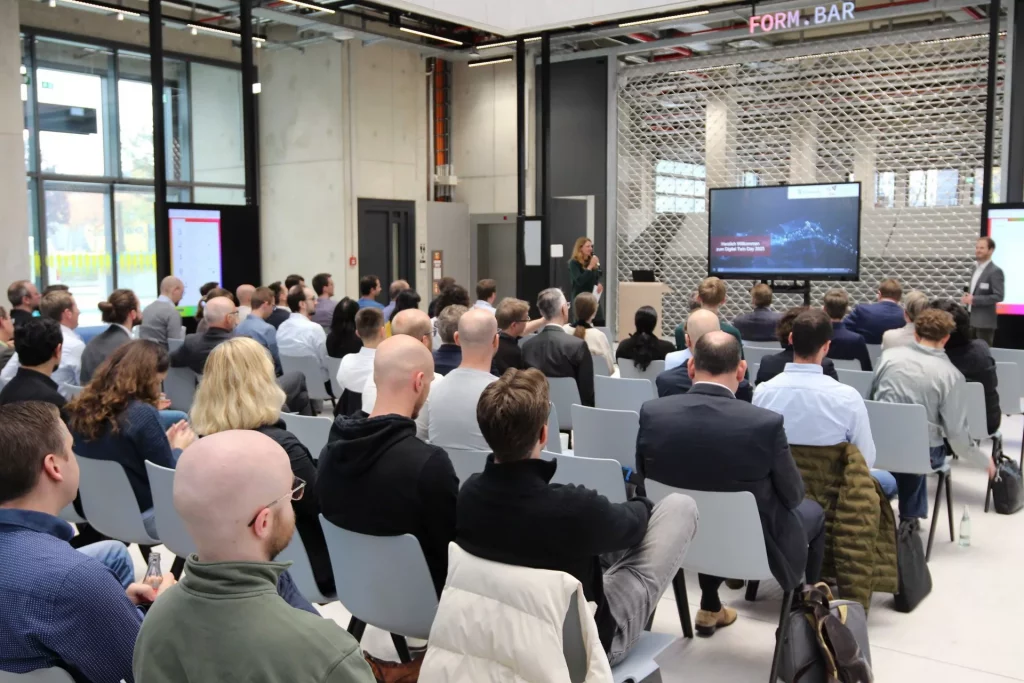
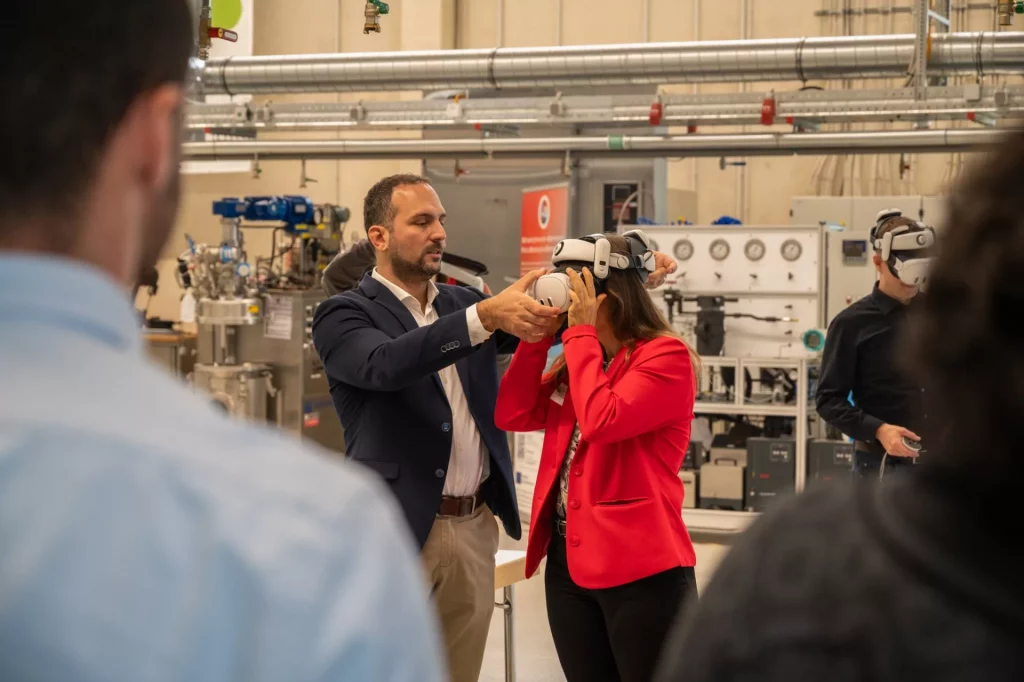
Digital twins are revolutionizing not only production, but also supply chains. From the field to the plate, processes can be modeled, sustainability measured and food security improved for future generations.
At the Digital Twin Day, participants were able to immerse themselves in production processes using a VR-supported industrial metaverse and test digital product passports - for example with a coffee robot. In this way, concepts such as supply chain digitalization, traceability and product lifecycle management (PLM) can be experienced in a practical way.
In logistics, digital twins ensure real-time tracking, optimized route planning and last-mile analyses. With the help of IoT sensor technology, edge computing and digital twin-supported simulation, supply chains can be designed to be resilient and energy-efficient.
This enables companies to identify synergies, reduce empty runs and improve asset utilization - all controlled by digital models that are continuously fed with data.
Digital twins are also being used in the energy sector: smart grids, load forecasts and demand response management are made possible by digital images of systems and grids.
Data-driven modeling, predictive analytics and simulation frameworks can be used to optimally coordinate energy generation, distribution and consumption. The result: efficient, sustainable and robust energy systems.
Digital twins are no longer a dream of the future, but a crucial building block for intelligent, data-driven value creation. They connect the physical and digital worlds, create transparency across processes and products and open up completely new opportunities for companies - from production and logistics to energy and sustainability solutions. Those who rely on digital twins today are laying the foundations for more efficient processes, well-founded decisions and future-proof innovations.
During my visit to the Digital Twin Day at TH OWL, it once again became clear to me what a central role digital twins will play for our customers in the future,“ says Christian Sons, Managing Director of DataSolid GmbH.
Companies increasingly need to make data-driven decisions in production, logistics and energy management. Our solutions in IoT sensor technology, real-time data integration and advanced analytics make it possible to seamlessly integrate digital twins into existing systems.
One example: By connecting our predictive maintenance platform with digital twins, machine conditions can be monitored and optimized in real time - reducing downtimes and increasing efficiency and resource utilization.
Digital twins also create transparency and resilience in the supply chain by making bottlenecks visible at an early stage and supporting sustainable decisions.
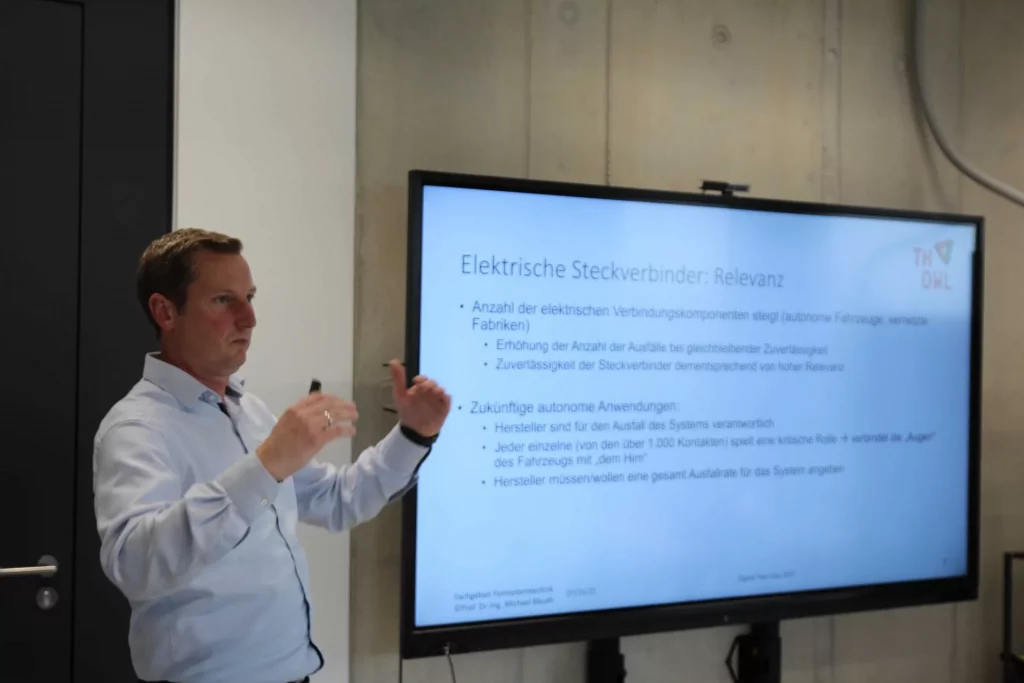
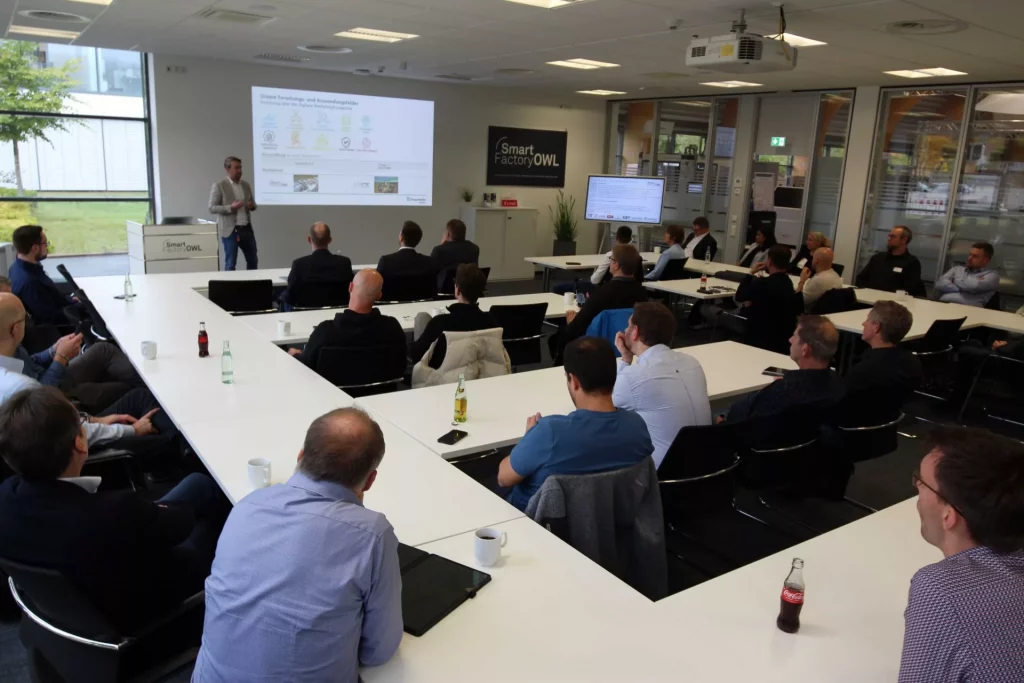
The event was supported by the TRiNNOVATION OWL project, funded by the Federal Ministry of Research, Technology and Space as part of the federal-state initiative „Innovative University
Picture credits: Fraunhofer Institute in Lemgo
DataSolid continues to evolve: with a new look, new telephone number and a new extended partner solutions.What remains the same? Our claim to be there for you - personal, technical, reliable.